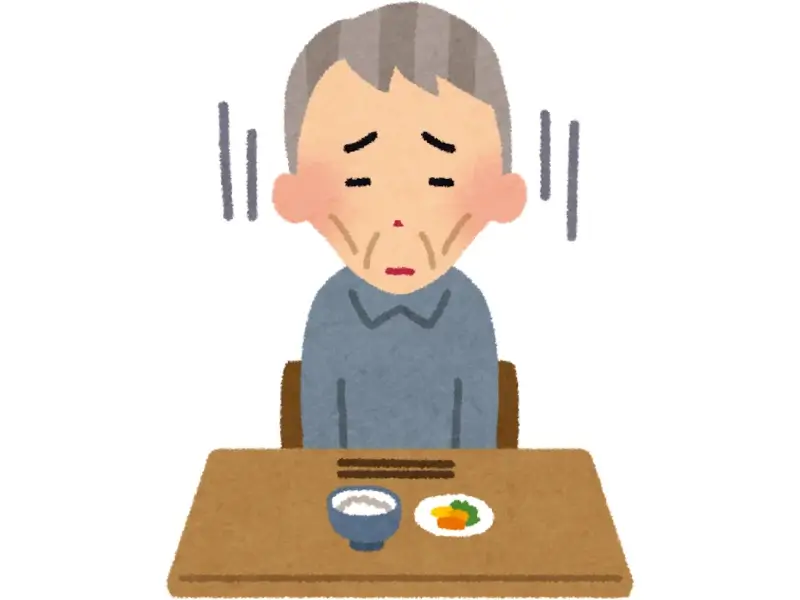
Did you know that changes in your estrogen levels can quietly affect your appetite, sometimes causing it to disappear altogether?
Many people don’t realize how much hormones like estrogen influence hunger and eating habits.
When estrogen levels shift, it can cause your appetite to drop or spike unexpectedly.
Along with these changes, mental health factors like depression and feeling weak can make it even harder to eat normally.
CNS Center Arizona understands these struggles and works with you to uncover the root causes and support your mental and physical health.
If your appetite is gone and you’re feeling weak or overwhelmed, we’re here to help you understand what’s happening and guide you toward feeling like yourself again.
Understanding Estrogen’s Role in Appetite Regulation
How Estrogen Influences Hunger
Estrogen is a hormone that affects various functions in the body, including appetite regulation.
During the menstrual cycle, estrogen levels fluctuate, which can influence hunger and food intake.
Higher estrogen levels are associated with reduced appetite, while lower levels can lead to increased hunger.
This is why some women notice changes in their eating patterns at different times of the month.
Estrogen Levels During Menopause
As women approach menopause, estrogen levels decline significantly.
This decrease can disrupt the balance of hormones that regulate appetite, leading to changes in hunger and eating habits.
Some women may experience increased cravings, while others may find that their appetite is gone.
These changes are a normal part of the menopausal transition but can be challenging to manage.
Appetite Changes During Menopause
Increased Hunger and Cravings
With declining estrogen levels, some women may experience increased hunger and cravings, particularly for high-fat and high-sugar foods.
This can be attributed to the body’s attempt to compensate for hormonal imbalances.
Additionally, stress and emotional changes during menopause can lead to emotional eating, further impacting appetite and weight.
Loss of Appetite and Reduced Food Intake
Conversely, some women may find that their appetite is gone during menopause.
This loss of appetite can be due to hormonal changes, stress, or underlying health conditions.
It’s essential to monitor these changes, as prolonged loss of appetite can lead to nutritional deficiencies and other health issues.
How Depression Causes Lack Of Appetite
The Link Between Depression and Eating Habits
Depression is a common mental health condition that can significantly impact appetite.
Some individuals with depression may experience a loss of appetite, leading to weight loss and fatigue.
This is because depression can affect the brain’s regulation of hunger and satiety signals.
If you’re feeling weak and experiencing a loss of appetite, it’s important to consider mental health as a potential factor.
Addressing Depression-Related Appetite Changes

If depression is contributing to your appetite changes, seeking support from a mental health professional is crucial.
Therapies such as cognitive-behavioral therapy (CBT) and, in some cases, medication can help manage depression symptoms and improve appetite.
CNS Center Arizona identifies the complex relationship between mental health and physical well-being and are here to support you through comprehensive care.
Managing Appetite Changes
Nutritional Strategies
Maintaining a balanced diet is essential, especially when experiencing appetite fluctuations.
Incorporating nutrient-dense foods, such as fruits, vegetables, lean proteins, and whole grains, can help ensure you’re getting the necessary nutrients.
Eating smaller, more frequent meals may also help if you’re struggling with a reduced appetite.
Lifestyle Adjustments
Regular physical activity can help regulate appetite and improve mood.
Engaging in stress-reducing activities, such as yoga, meditation, or spending time in nature, can also positively impact your eating habits.
Prioritizing sleep and establishing a consistent routine can further support overall well-being.
Seeking Professional Help
If you’re experiencing significant changes in appetite, if it’s increased hunger or a loss of appetite, consulting with healthcare professionals is important.
They can help identify underlying causes and develop a personalized plan to address your needs.
Which is why CNS Center Arizona offers psychiatric mental health care that is suited to fit your unique situation.
Feeling Weak And Loss Of Appetite? What It Means For Your Health
Physical Effects Of Poor Appetite During Menopause

When your appetite is gone, your body doesn’t get the nutrients it needs.
This can make you feel weak, tired, and less able to handle everyday activities.
Losing weight unintentionally can also affect your bones and muscles, which is risky if you’re undergoing menopause when bone density naturally decreases.
Taking care of your nutrition becomes even more important during this time.
Emotional Toll Of Appetite Loss And Weakness
Feeling weak doesn’t just affect your body, it can take a toll on your mood and sense of self worth.
You might avoid social events or skip meals because you don’t have the energy.
This can increase feelings of isolation and sadness, creating a cycle that’s hard to break.
It’s important to understand that appetite loss and weakness are signals your body and mind are asking for help.
How Local Arizona Climate Can Impact Your Energy Levels
Living in Arizona means dealing with heat and dry air, which can make feeling weak worse.
Dehydration is a common problem here and it can reduce appetite even more.
The heat can also tire you out, making it harder to cook or shop for groceries.
These local factors add another layer to the challenges lack of appetite brings, and it’s good to keep them in mind when managing your health.
Take Charge When Appetite Is Gone with CNS Center Arizona
Noticing your appetite is gone can be unsettling, but understanding what’s behind it can bring relief.
Changes in estrogen, mood shifts like depression, and feeling weak all play a part in how you eat and feel.
You don’t have to manage this alone.
If you’re struggling, CNS Center Arizona can help you find answers and support for your situation.
We’re familiar with the challenges Arizona women face and are ready to listen.
Taking care of your mental and physical health is important, and small steps can make a big difference in regaining your strength and appetite.
Reach out to CNS Center Arizona when you’re ready to talk or want guidance. You deserve to feel like yourself again.





